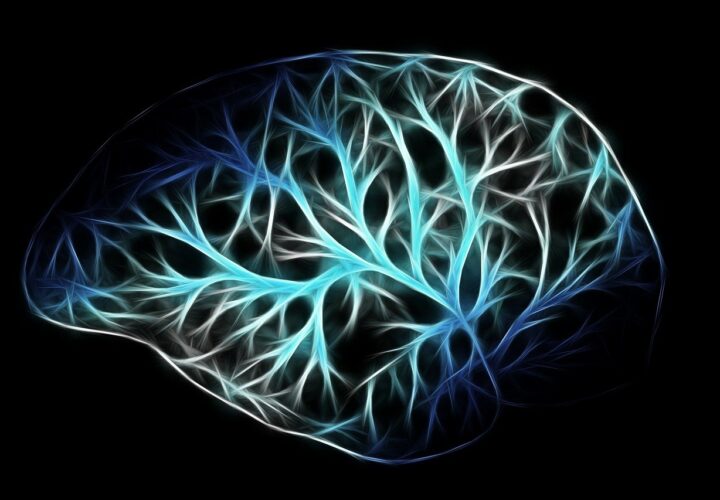A new approach to Alzheimer’s — a pill containing a key feature of human cells called mitochondria — is being developed to treat the disease before symptoms appear.
Housed within nearly all types of human cells are mitochondria. Measuring just 1 micrometer – or 1/75 of a hair follicle – in size, these cellular features (known as organelles) are seen as the powerplant of cells, processing oxygen and glucose to produce more than 90 percent of our body’s energy metabolism. With the brain consuming as much as a fifth of the body’s total energy, neurons – the cells in our brain – critically depend on the power generated by mitochondria. Now, scientists have reason to believe these little organelles may also play a big role in the fight against Alzheimer’s.
Research shows that patients with neurodegenerative diseases like Alzheimer’s have lower levels of glucose metabolism in their brains. According to Eugenia Trushina, a researcher at Mayo Clinic, this likely stems from problems with the mitochondria. If low glucose metabolism is detected in the brains of people before symptoms appear, she said, this could be an early indicator of Alzheimer’s disease. Her decades-long research into the relationship between mitochondria and neurodegenerative disorders gives her reason to believe that if the mitochondrial powers can be harnessed, that can translate into a new treatment.
“We are aiming for a pill,” Trushina told Being Patient in a live BrainTalk interview. She and her team are developing drug compounds that “penetrate the blood-brain barrier and target mitochondria, tricking them into thinking that they are under stress.” This signals the cells to produce younger organelles to better restore energy, all while reducing the activity of Mitochondrial Complex I deficiency, a common defect associated with neurodegenerative diseases. With grant funding from the Alzheimer’s Drug Discovery Foundation-Harrington Scholar Award, Trushina’s lab has already achieved some encouraging results.
Her team’s most recent study, which was published in Communications Biology (Nature) demonstrated that targeting mitochondria with small molecules known as CP2 does in fact trigger an adaptive stress response in mice, activating multiple neuroprotective mechanisms and mildly decreasing Mitochondrial Complex I.
“We took mice that already had plaques, tau tangles and signs of cognitive dysfunction and started to treat them after the development of symptoms,” Trushina explained. “We have shown that not only did we protect memory and improve overall health, but we also blocked neurodegeneration, which is the most important thing, because a loss of neurons actually accounts for the loss of memory in Alzheimer’s.”
The researchers were able to monitor the effectiveness of treatment in mice using biomarkers, which are measurements of what is happening inside the body. They were able to track these results using laboratory and imaging tests such as FDG-PET scans and bloodwork, which are currently used when diagnosing Alzheimer’s in humans.
Trushina said the significance of this work is “being able to evaluate the morphology of brain cells, multifaceted assessment of neurodegeneration, oxidative stress and inflammation and cross-validation using human databases,” which can eventually translate to clinical trials. “This multi-disciplinary collaborative work further supports the development of mitochondria-targeted therapeutics, ongoing in our laboratory, for Alzheimer’s disease and other neurodegenerative diseases,” she explained.
Also compelling were the findings in their recent paper in the Journal of Alzheimer’s Disease. The research showed that using small molecules identified by Trushina’s team to fight Mitochondrial Complex I also helped restore brain function that had been lost to tau tangles — a protein often found aggregating in the brains of people with Alzheimer’s.
Developing an Alzheimer’s drug that targets mitochondrial dysfunction is a novel approach. But based on promising study results so far, Trushina’s team believes that looking at these mitochondrial biomarkers in humans will shed light on how this future therapy may open a new window in the treatment for Alzheimer’s.
Of late, however, Trushina said the research, in partnership with the ADDF-Harrington Discovery Institute team, has been somewhat slowed by COVID-19. Her team is not alone — the pandemic has put research across the Alzheimer’s field on pause, due to the risk associated with in-person clinic visits for treatment and prevention trials. That said, her team and the drug discovery experts at Harrington adapted quickly, following covid-safe protocols to ensure their innovation continues to move forward.
While we wait for clinical trials to begin in a few years’ time, Trushina recommends exercise as a non-pharmacological way to boost your mitochondrial function. This is but one of several controllable lifestyle shifts found to be a factor in preventing as many as 40 percent of dementia cases.
“When you exercise or when you have caloric restriction, you reduce energy in the body and mitochondria could respond thinking, ‘If we could proliferate and have more mitochondria, we could maybe promote better energy through alternative substrates.’ So mitochondria will start producing more younger organelles, and this is very good,” Trushina said in her BrainTalk. “You can do that with non-pharmacological interventions, that’s why exercise is so important, but you can also do it with pharmacological interventions, and that’s what we’re focusing on in the lab.”
“We are working really hard to move this to the clinic, but it is still early in development,” Trushina said. “We are very optimistic that mitochondria are the new targets for neurodegenerative disorders.”
Watch a Being Patient BrainTalk with Trushina about her research:
Contact Genevieve Glass at genevieve@beingpatient.com



